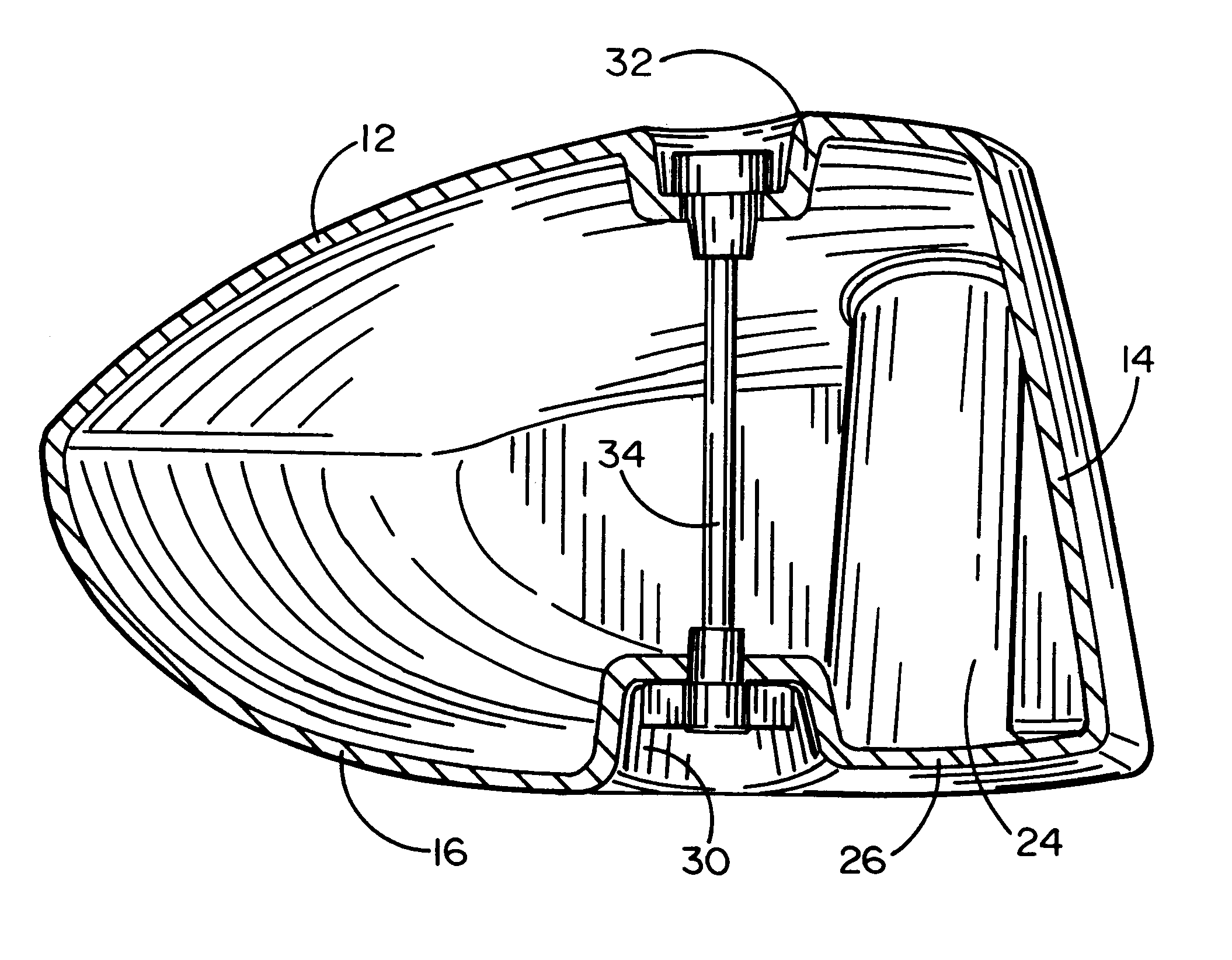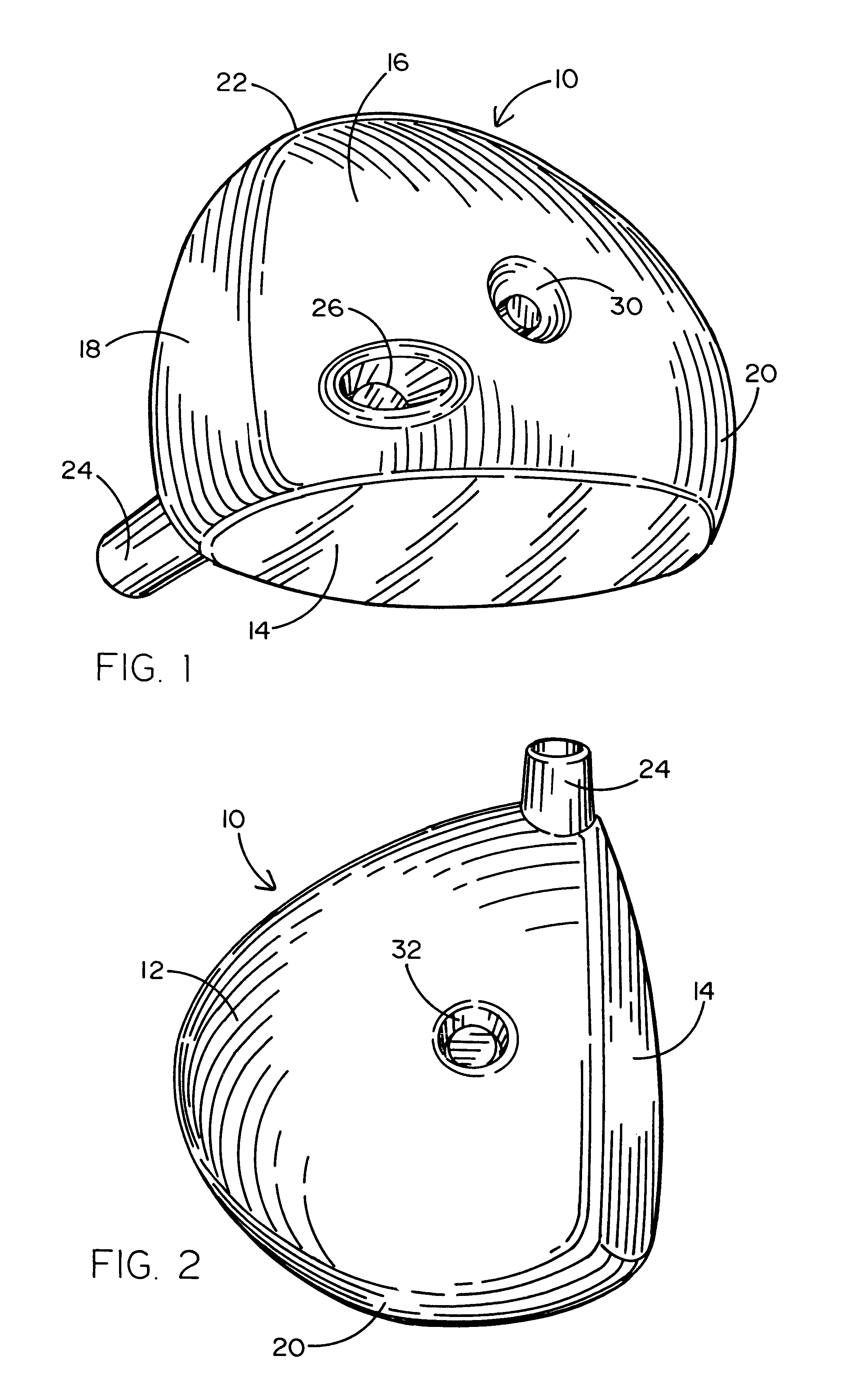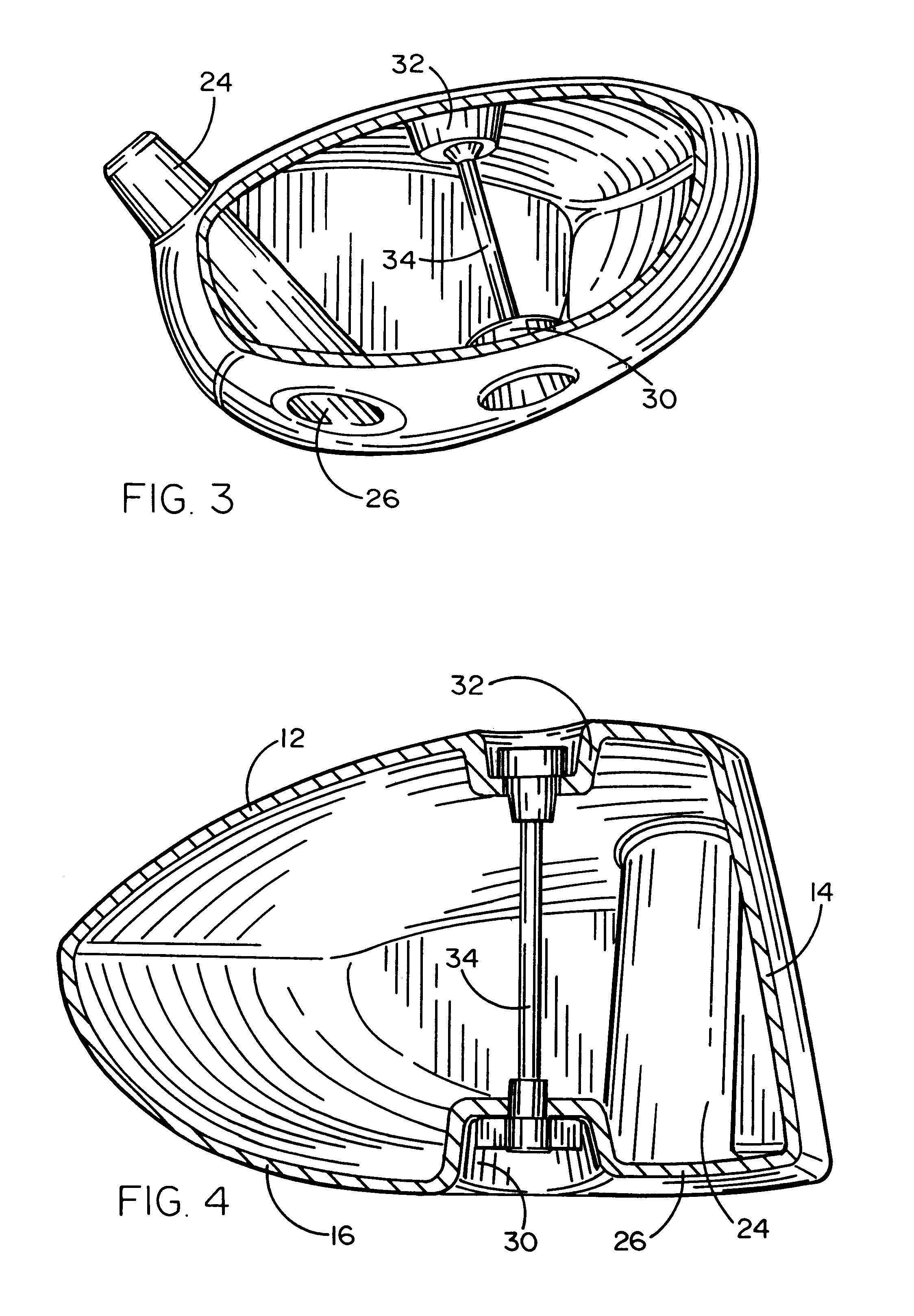Golf club head having a device for resisting expansion between opposing walls during ball impact
a golf club and opposing wall technology, applied in the field of golf club head, can solve the problems of wooden golf club head deformation, large amount of expertise, and low durability, and achieve the effect of improving the performance of the golf club and preventing the head from deformation at the ball impa
- Summary
- Abstract
- Description
- Claims
- Application Information
AI Technical Summary
Benefits of technology
Problems solved by technology
Method used
Image
Examples
Embodiment Construction
Referring to the accompanying drawings, it will be seen that a preferred embodiment of a golf cub metal wood head 10 comprises a top or crown 12, a face or hitting surface 14, a bottom or sole 16, a heel 18, a toe 20, a back 22 and a hosel 24. These various surfaces are generally configured as in typical driver heads forming a conventionally shaped golf club head. Hosel 24 extends into the interior of the head 10 and to the sole 16 forming a hosel / sole aperture 26 as seen in FIGS. 1 and 4.
Unlike conventional driver heads, the head 10 of the illustrated embodiment provides a sole recess 30 and a crown recess 32 at opposing locations on sole 16 and crown 12, respectively. Moreover, the present invention provides a tensioning device 34 which extends internally of head 10 between the sole recess 30 and the crown recess 32. Tensioning device 34 may be any high strength, lightweight, elongated member (i.e., wire) that can withstand tension forces exceeding at least several hundred pounds....
PUM
 Login to View More
Login to View More Abstract
Description
Claims
Application Information
 Login to View More
Login to View More - R&D
- Intellectual Property
- Life Sciences
- Materials
- Tech Scout
- Unparalleled Data Quality
- Higher Quality Content
- 60% Fewer Hallucinations
Browse by: Latest US Patents, China's latest patents, Technical Efficacy Thesaurus, Application Domain, Technology Topic, Popular Technical Reports.
© 2025 PatSnap. All rights reserved.Legal|Privacy policy|Modern Slavery Act Transparency Statement|Sitemap|About US| Contact US: help@patsnap.com



